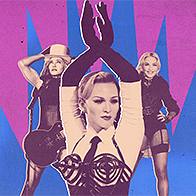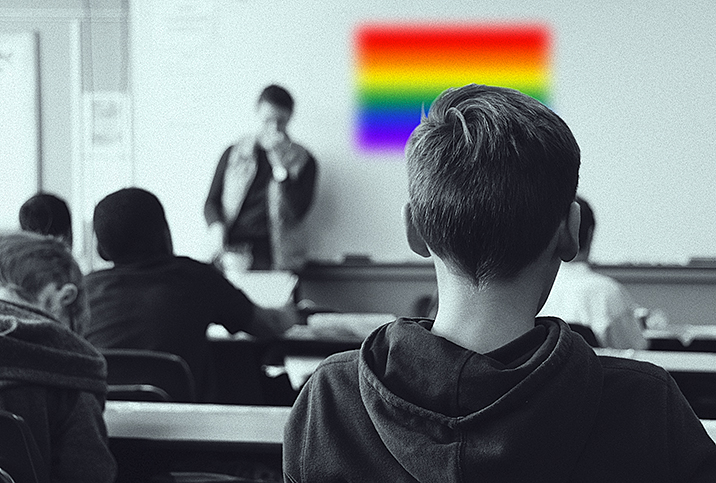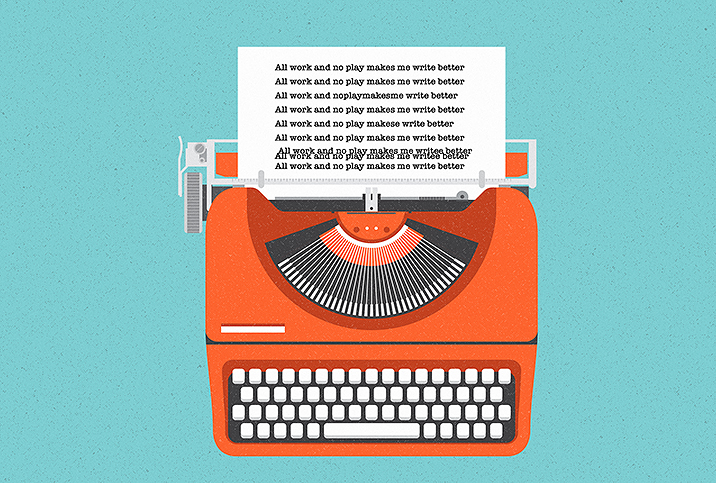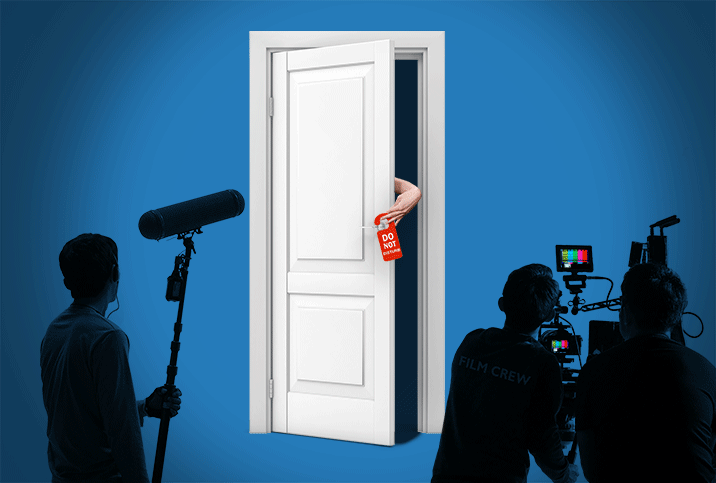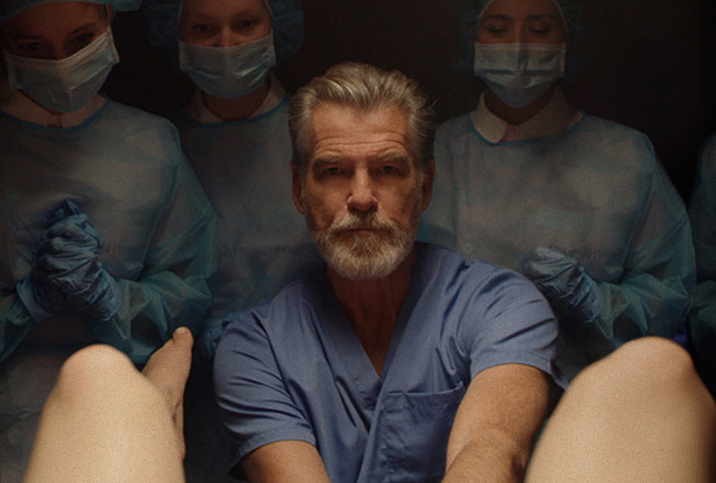Carrie Bradshaw Is No Sex Expert
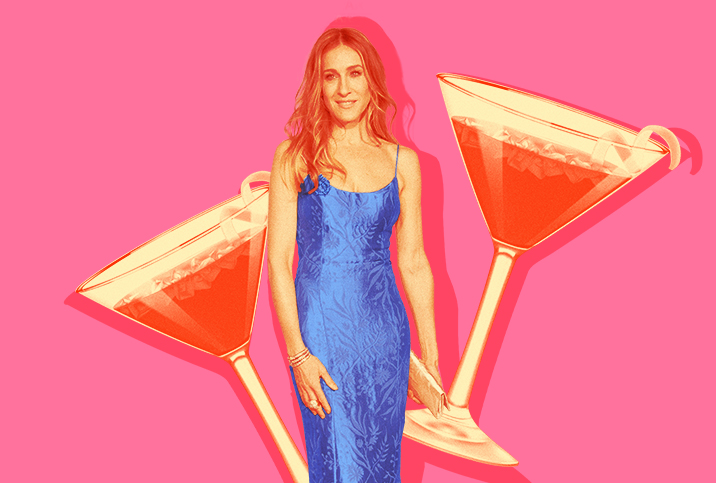
As a millennial sex journalist, I've spent all of my career writing in the shadow of a fictional legend in my field. I can recall in 2018, as I transitioned from my sex shop job to starting a blog, 20 whole years after the world met this character, that her life was the image most easily conjured by strangers who inquired innocently about my profession.
"I'm a sex educator and a writer," I'd offer, already wincing. "Oh!" the inevitable reply would come. "Just like Carrie Bradshaw!"
Well, not quite. As the protagonist of HBO staple "Sex and the City," Carrie Bradshaw was indeed a sex columnist for a New York newspaper, just like her creator, Candace Bushnell. The difference is, both the original column as penned by Bushnell and Carrie's on the sitcom it spawned are explicitly intended as entertainment, and not education, or even necessarily to inform.
And yet, woven into the discourse surrounding Carrie's complicated legacy is an underlying assumption that Carrie is some sort of sex expert or "guru" just because she had a regular writing gig on the topic. Carrie doesn't fit that description by the standards of today or two decades ago, but it says a lot about the rest of us that we foisted it upon her anyway.
A world of wondering
For what it's worth, I don't believe Carrie would consider herself a sex expert, either. Early in the series, as she banters with her principal paramour, Mr. Big, she refers to herself as a "sexual anthropologist" as a means of describing her work, in lieu of a "sex journalist" or even "sex researcher." Her choice of euphemism tellingly paints her in the light of a perpetual, casual observer, as opposed to a trained professional.
The show itself makes it abundantly clear that those column inches are merely a fancy perch upon which Carrie can muse aloud, with each issue anchored by whatever she recently "couldn't help but wonder." It's not a terrible place to begin an investigation, but the way Carrie collects her data tends to undermine her conclusions.
Carrie believes that everyone aspires to live like New York's whitest and wealthiest do, or at least acquire the trappings of that life—say, designer shoes.
One core problem is most visible in the first season, when we meet some of Carrie's sources in fourth-wall-breaking vignettes. They are exclusively among New York's most idealized inhabitants, the type of person that Carrie imagines when she waxes poetic about the city like an estranged lover. Carrie believes that everyone aspires to live like New York's whitest and wealthiest do, or at least acquire the trappings of that life—say, designer shoes.
Sure, maybe that's her target audience, but as the series goes on, it becomes ever clearer that no one outside that group really seems to register. The fact that she only seems to take in information that fits into her worldview precludes her from being an authority of any sort, especially when that worldview is so tainted by privilege.
Who gets to be called an expert?
Then, there are the many moments when Carrie's judgment seems disqualifying in and of itself. In an early episode called "Models and Mortals," while interviewing a supposed "modelizer," Carrie discovers that he tapes his sexual encounters with those women without their consent. As they watch, she's visibly titillated, even lighting a cigarette. But she fully understands that it's a hideous violation, later warning Samantha against going to his home.
Sex educator and Livestrong health writer Tiffany Curtis rewatches the show every year or so, and by now, Carrie's transgressions are easy to spot. "Carrie just wasn't sex-positive," said Curtis. "Throughout the series, we saw her be judgmental about fetishes, like the politician who liked golden showers. She also slut-shamed Samantha, her supposed best friend, and was repeatedly biphobic."
Carrie Bradshaw isn't the only sex writer, real or imagined (or, as it were, a bit of both) who has amassed a huge following despite being poorly suited to lead it. It's hard not to notice, however, that so many of them look a lot like her.
That fact is a big part of why Alex W-R, an MSW and the blogger behind Sexology Bae, became a sex educator to begin with. "I didn't see people who had identities like mine talking openly about sex in public spaces," said Alex, a Black woman raised Baptist in the U.S. South. "My relationship to those concepts doesn't look the same as a wealthy New York white woman, so my journey to unpack them is different, too."
Alex makes it clear that she believes the show was saying something "unique and important" when it premiered in the late '90s, given how rarely sex was discussed openly in the media outside of scandals, like during the Clinton administration. It's not even that Carrie's privilege necessarily prevents her from adding value to the conversation.
But it's painfully obvious that the sex educators whose platforms attract the most engagement are, like Carrie, thin, white and cisgender. When "Sex and the City" first premiered, Alex said, everyone who didn't see their experiences reflected in Carrie and her friends "were essentially told we had to wait our turn to be sex-positive in the media. Twenty years later, we haven't really gotten there."
Uplifting new voices
Carrie Bradshaw was a kind of micro-influencer ahead of her time, given the way her work could garner such enormous enthusiasm from a tiny slice of her audience. And I say that without a hint of sass. There will always be a place for artists and creators who wish to court engagement from a small subset, and they're capable of deeply resonant work.
The problem comes in when the predilections of that subset are presented as universal, via the uncritical opinions of an over-privileged and under-trained observer, which are then widely regarded as actual expertise. The collective impulse, in Carrie's world and in ours, to elevate such a figure as some sort of authority on sex and love reveals a timeless cultural habit of conferring genius onto members of the upper crust who are merely outspoken.
At least nowadays, those of us looking on have the app-enabled means to influence the conversation, which has gained much more nuance than it had 20-odd years ago. Tiffany Curtis, a sex writer, marveled at how much the profession has evolved in the time since the show originally aired.
'We are debunking myths, unpacking our own negative views about sex, and helping others move toward sexual liberation.'
"I think what's changed in our field now is that a lot of sex writers are actively educating their readers on sexuality from a place of promoting sexual wellness and pleasure," said Curtis. "We are debunking myths, unpacking our own negative views about sex, and helping others move toward sexual liberation."
They say that anything's possible in New York, and the older I get, the truer it seems. But as I watch the "Sex and the City" franchise continue to churn out reboots and prequels, I find myself growing concerned. Will we ever truly expand our thinking about what sex and love can look like beyond stiff old scripts?
Then again, we're living in a wildly different cultural landscape, one foreseen by Samantha Jones herself (who happens to agree with me about Carrie, for what it's worth). When I consider how many new voices are now part of the conversation thanks to social media, I feel hopeful that we can collectively write a new story.







